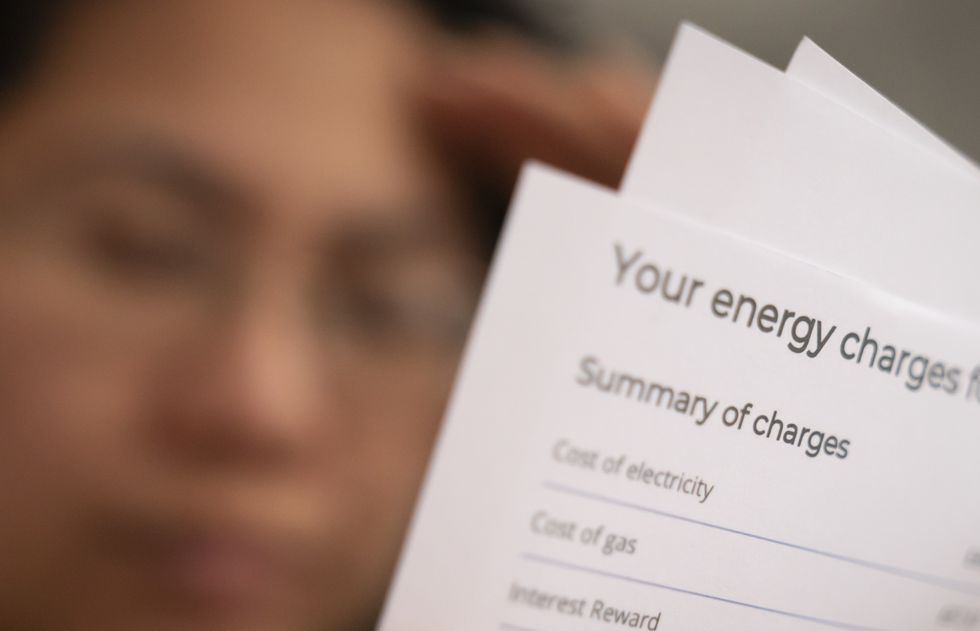Energy alert: Millions of households to see bills fall under new price cap - top 10 areas to benefit the most

Energy bills to fall in July as Ofgem confirms price cap drop |
GBNEWS

Households across the UK will see lower bills from July, but uncertainty remains over whether costs will stay down for winter
Don't Miss
Most Read
Latest
Energy bills will fall from today as Ofgem's price cap drops by seven per cent, bringing relief to millions of households across England, Scotland and Wales.
The typical household bill will decrease by £129 to £1,720 per year, saving families £11 monthly on their energy costs.
This represents a significant reduction from the peak of the energy crisis in early 2023, when bills stood £660 higher. However, prices remain elevated compared to pre-crisis levels, sitting £152 above the same period last year.
The new cap affects approximately 22 million households who have not switched to fixed tariffs, whilst around 35 per cent of domestic customers have already secured alternative deals.
There is still uncertainty over whether costs will stay down for winter, so Britons are urged to look around.
 Energy customers are urged to act or risk overpaying bills | GETTY
Energy customers are urged to act or risk overpaying bills | GETTY Consumers can secure greater savings by switching to fixed deals, with ten tariffs currently available below the July price cap level.
The cheapest fixed deal offers annual savings of approximately £145 for average households, prompting Ofgem to remind customers that "there are better deals out there". Fixed tariff uptake has surged from 15 per cent to 35 per cent of billpayers over the past year as more competitive offers became available.
Ben Gallizzi at Uswitch advised: "If you can switch to a deal cheaper than the July price cap, now is a good time to make the change. We urge customers to run an energy comparison as soon as possible."
These deals provide price certainty, though actual bills still depend on consumption levels.
While households across the UK will benefit from the new energy price cap, research shows that some areas will see much larger savings than others.
Rural and coastal regions like Argyll and Bute, the Highlands, and Cornwall are among those set to benefit most, largely due to higher energy usage in these locations.
The City of London also ranks highly, likely due to a mix of smaller population size and high average consumption per household.
The findings come from energy grant specialists UKEM, who used 2023 data from the Department for Energy Security and Net Zero to identify the top areas saving the most under the July 2025 price cap.

Households can benefit from energy bills
| PATop 10 Energy Bill Savings by UK Area:
- City of London – £76.80
- Argyll and Bute (Scotland) – £70.60
- Highland (Scotland) – £67.00
- Cotswold (South West) – £64.10
- Elmbridge (South East) – £60.80 / South Hams (South West) – £60.80
- South Oxfordshire (South East) – £60.50
- Waverley (South East) – £60.20
- Uttlesford (East of England) – £59.10
- King's Lynn and West Norfolk – £59.00
- Cornwall (South West) – £58.80
Looking ahead, energy consultancy Cornwall Insight forecasts only a modest one per cent reduction in October, which would bring annual bills to £1,697 for typical usage.
The consultancy warned of "significant uncertainty" surrounding this prediction, noting that Middle East tensions could impact wholesale prices.
They stated: "The cap still remains hundreds of pounds above pre-pandemic prices, even when adjusting for inflation. Furthermore, there is little indication that prices will reduce substantially over the next few years."

Under new proposals from Ofgem, energy network costs passed on to suppliers,
| GETTYMinister for Energy Consumers Miatta Fahnbulleh acknowledged the ongoing challenge, saying the government aims to reduce reliance on fossil fuels to protect consumers "from the impact of events beyond our borders".
Also a key part of household energy bills is expected to rise from next year, as the UK moves to secure its energy supply during the shift to greener power.
Under new proposals from Ofgem, energy network costs passed on to suppliers, and ultimately to customers, could increase bills by around £24 a year from April 2026.
These network charges currently make up about 22 per cent of the average energy bill. The planned increase is part of a wider effort to upgrade the electricity and gas networks to support more renewable and nuclear power.
The proposals are still in draft form and will be subject to consultation, with a final decision due by the end of 2025.
More From GB News










